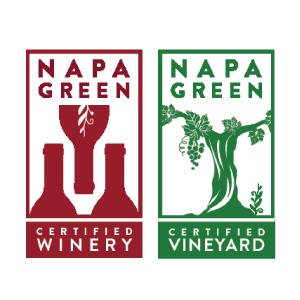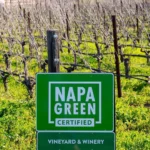Do Sustainably Made Wines Taste Better?
-
 Sandra Taylor | Wine Review Online
Sandra Taylor | Wine Review Online
- |
Sensory analysis (or sensory evaluation) is described by Wikipedia as a scientific discipline that applies principles of experimental design and statistical analysis to the use of human senses (sight, smell, taste, touch and hearing) for the purposes of evaluating consumer products.
Of course I realize our readers don’t come to WRO for scientific or statistical analysis, but the “sensory aspects” of wine have always given rise to interest both in the scientific community and among consumers. (If we were going to get really technical here, I’d write “organoleptic aspects of wine,” isolating the properties of wine that act on the sense organs or are experienced by them—but let’s stick with “sensory aspects” and not get that starchy!) Many wine shoppers rely on reviews and wine critics for their fancy descriptors and overall evaluations of wine before we make a purchase, and recently the wine trade has seen a lot of research on how and why our individual taste buds differ. Wine is very much connected to psychological phenomena besides being purely sensory. There have been many studies carried out on different aspects connected with wine tasting such as the cognitive and perceptual processes that characterize wine expertise.
While there are several studies on wine perception, not a lot is known about sensory characteristics of wines deriving from sustainably-made vs conventional wines. The intrinsic sensory aspects of wine—notably taste and aroma – aren’t the only components in the decision making of many contemporary consumers. In addition to a product that is enjoyable in all sensory aspects, these consumers expect wines to be healthful and produced in an environmentally sustainable manner. Today’s wine consumers are increasingly concerned by the effects of conventional agricultural production practices on both human and environmental health and seek assurance that the industry is effectively protecting the environment and treating workers fairly, all while delivering quality wines. Robert P. Koch, President & CEO of California’s Wine Institute, has stated, “Sustainable winegrowing improves wine quality, helps wineries compete in the global marketplace where consumers are increasingly interested in knowing that the foods and wines they enjoy are produced in an environmentally friendly manner.”
Many wine growing regions have well established sustainable certification standards, starting with growers in Lodi, CA that established its mandatory Lodi Wine Grape Commission in 1991 and its sustainability certification, Lodi Rules, in 2005. Sustainable Winegrowing in New Zealand first started with growers in 1994 and then was introduced commercially to the whole industry in 1995. Some producers, especially in Europe, have opted instead for biodynamic and organic viticultural and winemaking methods. Now growers and winemakers around the world realize the benefits of sustainability. We know these practices protect and preserve the land and conserve the environment for many generations to come of owners, growers, winemakers and rural communities.
Regrettably, sustainability managers too often judge a sustainable wine exclusively on the arithmetic of environmental and social indicators. As important as those are for determining certification, a certified sustainable wine should also be able to exhibit sensory characteristics that match consumer preferences and respond to their consumption needs. I have often wondered whether sustainable practices would lead to wines that consumers favor from a taste perspective. Likewise I hope that consumers would pass up mass-produced, industrialized wines that often appeal to their taste expectations (because they are manipulated in the winery to taste the same from year to year) but have no meaningful sustainability attributes.
Anna Brittain, Executive Director of Napa Green, a premier sustainability certification program in Napa Valley that works with individual wineries and vineyards to develop customized plans for sustainability all the way from soil to bottle, shared her thoughts with me:
“Implementing sustainable winegrowing practices and achieving certification requires greater attention to detail and more nuanced management decisions. Careful attention and consideration almost always translates to higher quality. There have been a few studies that reviewed tens of thousands of wine ratings and found that wines made with organic grapes receive significantly higher scores on average. I believe if a similar study was done of certified champions of sustainable vineyard practices we would see the same results. I’m ready for that study.”
So am I!
In the meantime I decided to seek the opinions of several winemakers, who practice organic, biodynamic, sustainable or natural winemaking. A few have multiple certifications and are as focused on producing a bottle of sustainably made wine that matches a consumer’s environmental and social fairness values while also fulfilling the consumer’s taste expectations.
Wine production is both art and science, a blend of individual creativity and innovative technology. To be successful in the modern marketplace, a winemaker must integrate the artistic, scientific and economic aspects of wine production, and possess a solid understanding of the intrinsic and extrinsic factors that underlie consumers’ purchase motivation. I’m not a scientist and would not venture to explain all the elements that go into taste profiles and the psychological factors influencing wine choices. I sought the views of several winemakers and asked them whether their sustainability practices contribute to quality in the glass.
Here are their views on the matter:
Tod Mostero, Winemaker, Dominus Estate (Yountville, CA):
“A wine’s balance, complexity and expression of terroir require sustainable farming. Balanced wines can only be made from balanced grapes. Balanced grapes must come from balanced vines, which only grow in living and stable soils. Sustainable farming promotes biodiversity, increases the percentage of organic matter and leads to a thriving microbiological ecosystem, all of which improves a soil’s stability, retention of plant-available water, and the vine’s mineral uptake. These conditions favor healthy growth and vitality, and the resulting wines express the vineyard’s natural balance.
Dry farming not only conserves a limited resource, but it also increases root depth, connection to the land and improves drought and disease resistance, expanding the vine’s ability to express in the glass the complexity found deep within the soil’s horizons.”
Tod also stressed that human intervention makes a huge difference at Dominus. “Field workers with an intimate understanding of our vineyard have the know-how to make precise interventions adapted to our site, and to make a wine that reflects the subtlety of our unique ecosystem and a sense of place. We retain long-tenured, skilled workers by making the Social Equity aspect of sustainability a priority: providing affordable housing, healthcare, living wages and enrolling our workers to steward the land.”
Giulia Migliorati, General Manager, Valle Reale (Montepulciano d’Abbruzzo, Italy):
“Leave to nature the task of establishing an organoleptic profile of the wines…”
“I would answer yes, saying that ‘health is the new wealth’ in the sense that quality doesn’t mean anything if it doesn’t preserve the environment, the sustainability of the product and our health. In this direction, sustainability improves our quality of life. Moreover, talking specifically of our wines, sustainability means practices that produce terroir-driven wines, rather than standardized, industrial products. So also, for this reason, yes, it is quality in the sense that you taste what is typical and traditional to that culture and land. It is ‘the smell of our land in your glass of wine.’”
Sensory factors also include the visual beauty of wine regions and tourism appeal. Accordingly it’s important to note that Valle Reale, certified biodynamic, is located in a national park and wildlife preserve in Abruzzo, and that their sustainable approach to preserving the natural habitat, water conservation and biodiversity also help preserve beautiful landscapes for rare animal species and for visitors to enjoy in the park.
Alison Rodriguez, Winemaker, Hess Collection (Mount Veeder, Napa)
“It’s really hard for me to imagine that truly world class wine could be made in vineyards which are not farmed sustainably. Sustainability, at its core, requires the soils, vines, and surrounding environment to achieve balance. Balance creates a resilience in the vineyards that translates directly into our wines by providing the means for the vines to weather myriad challenges each growing season with strength and grace. That balance provides an even keel, so to speak. It’s this resilience, strength, balance and grace which – at least for me – are evident in every bottle grown in our vineyards and are part of the delicious alchemy and energy in our wines.”
From Belén Iacono, Chief Agronomist and Winemaker, Bodega Catena Zapata (Mendoza, Argentina)
“When we define our sustainability program goals, we think on the next question: ‘What do we need to produce wine for the next 100 years?’ And to answer that question we’ve realized that we need to protect nature and preserve the ecosystem of the vineyards because is the main aspect responsible for the quality in our wines. That’s why sustainability is so important, because we are guardians of these lands that give us unique wines. The Catena Institute of Wine is doing research on key topics that will help us to preserve these unique places in time: biodiversity, Malbec massal selections, soil microbes, water use, energy efficiency.”
Laura Catena, fourth-generation winemaker at Bodega Catena Zapata, who is also an emergency room physician in San Francisco, also shared her views from a medical perspective: “We can think of sustainability as preventative healthcare. Having high blood pressure might not hurt us today, but long term it can cause heart attacks, strokes and kidney disease. Sustainability is preventative healthcare for the vines. If we help preserve the glacier water in the Andes, we will have water for our vines and they will be less stressed, last longer, and produce more balanced grapes that will yield better wines. If we preserve biodiversity, beneficial insects and animals will keep vine predators at bay. We will have a better chance of harvesting healthy grapes. If we are able to preserve diverse massal selections of Malbec, in the future, we might identify specific vines that have resistance to heat or drought, and in this case, thanks to sustainable approaches, we might be able to preserve the Malbec variety as a whole. I have no doubt that sustainable farming improves quality in the glass!”
From Heather Fraser, Assistant Winemaker, Yalumba (Barossa Valley, Australia)
“In answer to the question of whether sustainability improves quality in the glass, the short answer is yes it does. Sustainable vineyards lead to larger biodiversity and enhances the individuality of the terroir. This then translates into the wines through wild yeast fermentation and the need for minimal winemaking intervention creating quality wines that are alive and a direct reflection of their heritage. When tasting these wines, especially in the vineyard, you can’t help but feel the beauty of the environment coming through in the glass.”
* * *
In conclusion, I don’t make any assertions about the taste differences between certified sustainable, organic or biodynamic wines. From my perspective, any of these wines would be great to taste, compared to mass produced, conventional wines.
I’d love to hear what WRO readers think about this topic. Contact me at saneliz@icloud.com or @mzwinediva on Instagram.
About napa green
About Napa Green: The Napa Green 501c3 is a global leader in sustainable winegrowing, setting the highest bar for sustainability and climate action in the wine industry. Napa Green facilitates whole system soil to bottle certification for wineries and vineyards, and provides the expertise, boots-on-the-ground support, and resources to continually improve. Learn more at https://napagreen.org/participating-members/.
Anna Brittain
Napa Green
+1 805-636-3329
email us here
Visit us on social media:
Facebook
LinkedIn
Instagram



